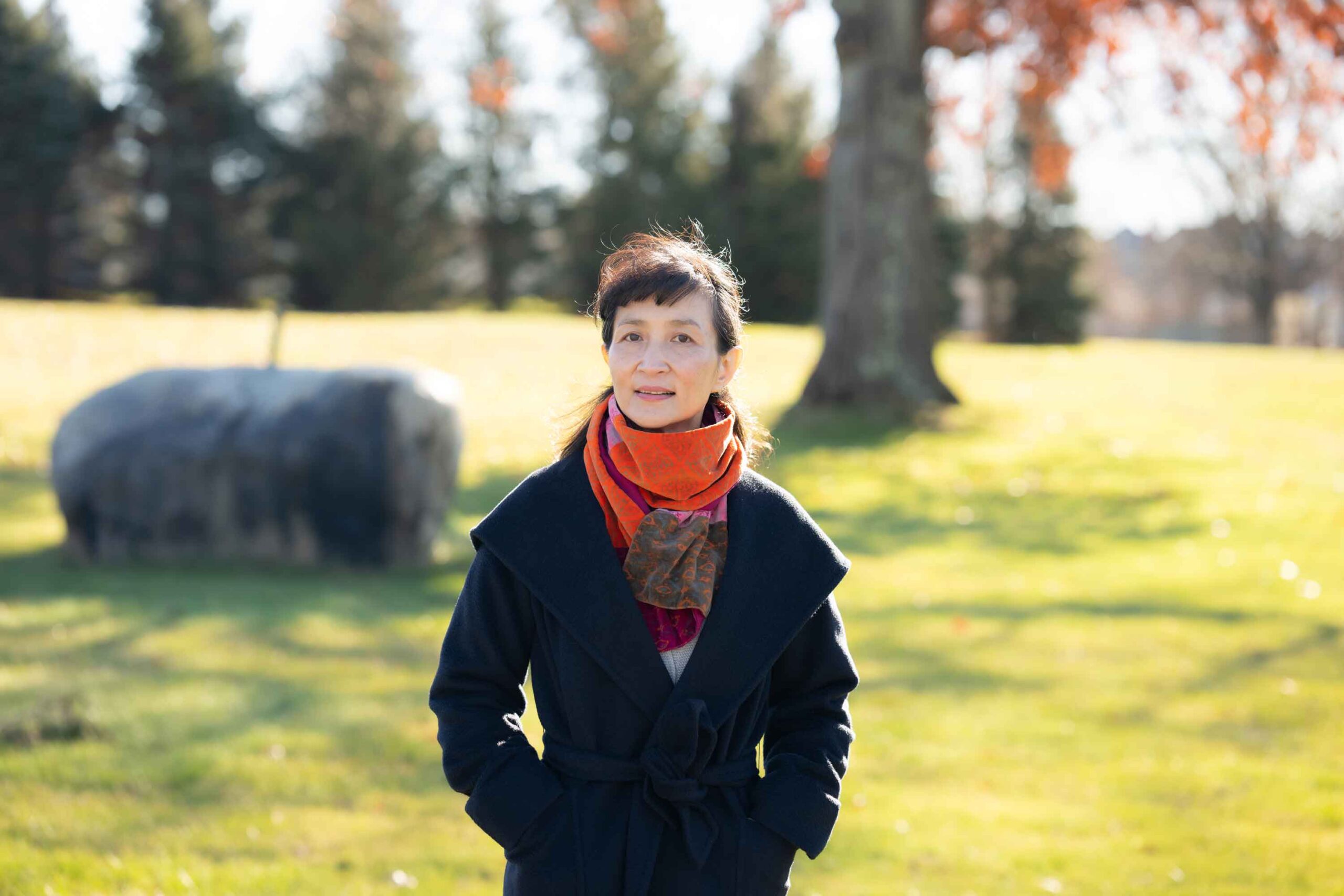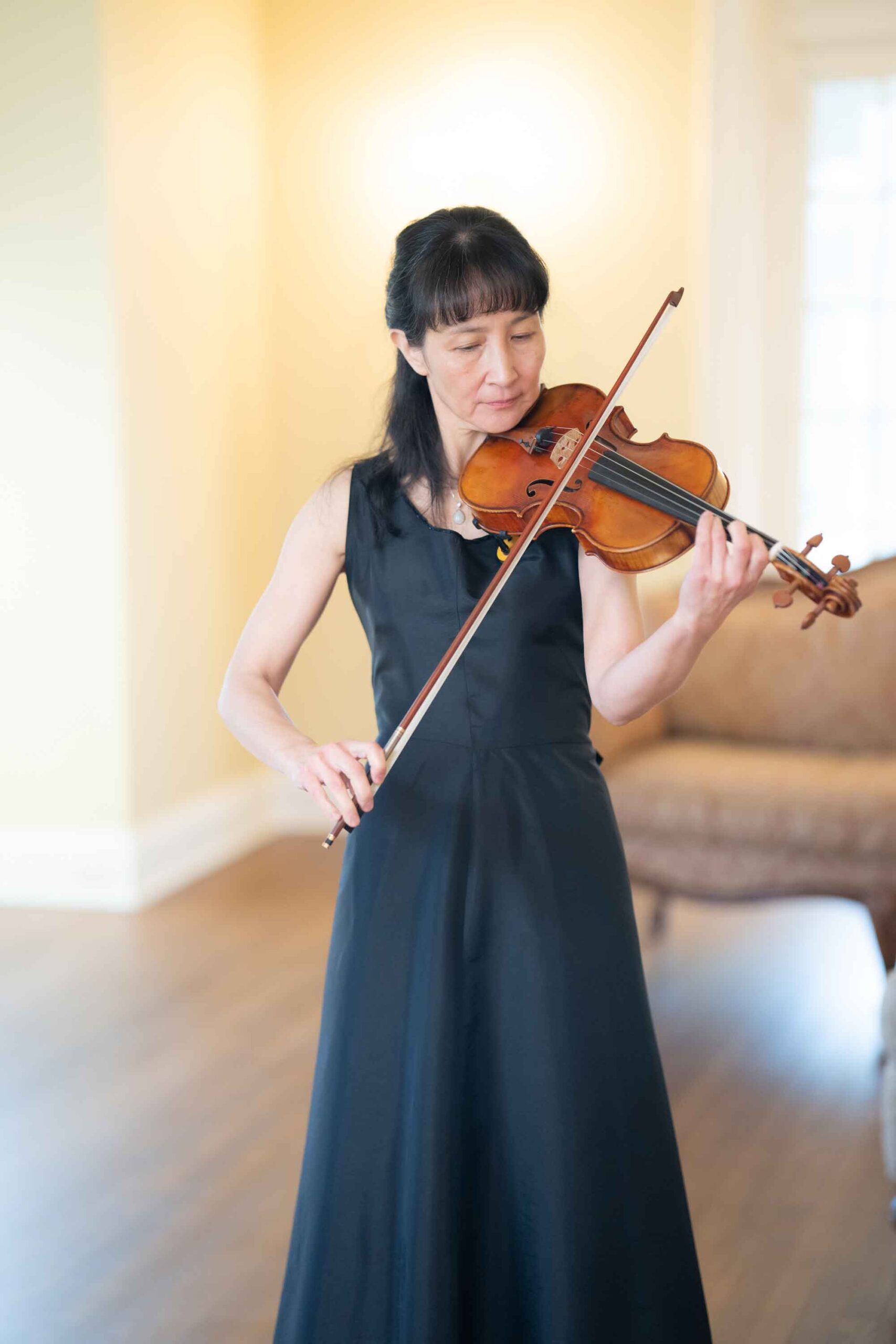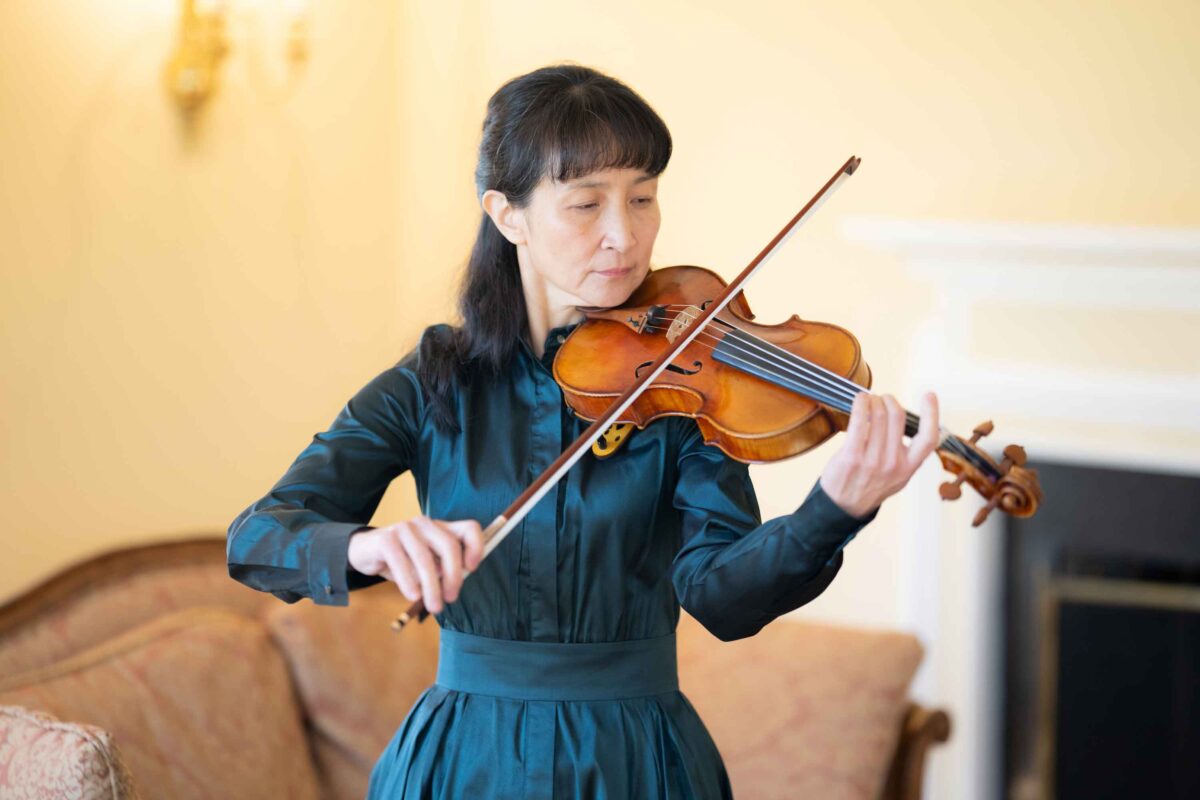Li Fan, an expert in baroque and early music, recently returned to playing the modern violin. It was a bigger adjustment than she expected, especially given her dynamic career in violin before taking up early music, and the experience prompted her to consider many things about the change of pace in music, culture, and life over the course of history.
“People [today] don’t have the heart to do a single, slow thing. In this mindset, we’ve lost some of the finer details. There’s a loss of sensitivity in this. We need more volume and power and speed to excite people,” Li said. “Now we need stronger sounds, bigger, brighter, and louder, more virtuosic. … I think this is very interesting.”
In the past few years, her career has in a way come full circle, her artistry deepened by a renewed understanding of tradition and faith.
Fated Encounter
After a decade of performing as a violinist in the orchestras of renowned ballet and opera companies in China, and recording numerous CD, radio, television, and film projects, Li turned her sights on Germany. Wanting to deepen her study of music, she went abroad. In a twist of fate, Li was introduced to early music and embraced it with open arms.
“What began as a fated encounter turned into a mission,” Li said.
Already 30, Li baffled administrators when she applied to German music conservatories. They would tell her that most of their incoming students were a mere 17 years of age and wondered what she was doing among them.
Li was accepted into a school, but was told that there weren’t enough teachers, so she would have to wait a semester before beginning classes. Homesick and tired of waiting, she decided to investigate whether there was some other class she could take.
“The first thing they asked me was how old I was,” Li said. She quipped that they must have found her old because they advised her to go learn old music. She was sent to the ancient music department where, finally, she was told to come back the next week and bring her instrument.
When Li returned, she was introduced to a whole new world of sound.

Ancient Studies
“This instrument came to me, and I accepted it, studied it, understood it, its history and content, and appreciated the beauty of it,” Li said. She delved into not just early music, but also medieval art and culture.
“It’s very close to God—all the arts were about God,” she said.
During her studies in Germany, she took master classes with Ton Koopman, a conductor and renowned musicologist; John Holloway, a baroque violin expert; Anton Steck, a violinist and conductor; and Pedro Memelsdorff, a music director and musicologist specializing in medieval music.
She was a member of the Paradiso ensemble in Frankfurt and collaborated with La Stagione Frankfurt, the Free Dance Theater in Frankfurt, Maurice van Lieshout, Michael Schneider, the Mannheim court orchestra, and the Main Baroque Orchestra.
After graduating from the Frankfurt University of Music and Performing Arts in Germany, Li furthered her postgraduate studies in historical interpretation with Petra Müllejans, the German violinist, conductor, and pedagogue renowned for her work in historical performance practice, and Li later became an assistant instructor for the professor’s master classes.
She also studied medieval and Renaissance music at the Schola Cantorum Brabantiae with Maurice van Lieshout and Rebecca Steward.
Li’s time in Europe was spent performing, in ensembles small and large, playing both old music and new premieres. She recorded a number of new CDs, including an album of Vivaldi’s works with the Capella Academia, and Telemann concertos with La Stagione Music Orchestra. She appeared in recorded live productions such as the DVD of Schauspiel Frankfurt’s 2009 Roter Ritter Parzival (Percival, the Red Knight). She became a founding member of ensembles Aquilla, La Pace, and the Allegris Quartett, touring in both Europe and Asia. Li was selected by the New Frankfurt Philharmonic to share the stage with artists including the beloved Andrea Bocelli and celebrity David Garrett.
“Then, returning to the modern violin—it just looked so fast,” Li said.
Reviving Tradition
Recently, Li accepted a position with the world-renowned Shen Yun Performing Arts. She was interested in both the company’s music and mission. A person of faith herself, she appreciated the fact that New York-based Shen Yun doesn’t shy away from faith and tradition.
“This is a very unique ensemble,” Li said. Though the instruments in Shen Yun’s orchestra are modern, and the music is newly written for each season, the music is traditional in composition from the standpoints of both the East and the West—ancient Chinese music arranged for a Western orchestra.
“We talk about reviving tradition—that’s not an easy thing, and not something you can just say casually. But we have to do it. We are doing it—in a way that is complex, harmonious,” she said. “The music is Chinese, and it’s not just pleasant to listen to, but also meaningful. It gives you a lot to think about. There is a story. … There is deeper meaning and a touch of the divine.”
In this space, Li felt she could take all the experiences gained in her life—the years spent playing music she felt was closest to God, the traditional Chinese culture she was steeped in during her upbringing—to fruition. In encountering Shen Yun, she gained a sense of mission.
“‘Reviving traditional culture,’ this phrase is something I think about all the time now, and it’s close to my heart. I’ve lived with early music for so many years in my career, and my upbringing was that of traditional culture,” Li said. “I felt I could really purely and simply focus on this mission.”
By this point in Li’s career, early music fit like a glove—a worn and comfortable one. She didn’t need to take up the modern violin again, whose metal strings and modern bow were sonic worlds apart from Li’s comfort zone. But Shen Yun’s mission so moved Li that she threw herself into practicing the violin again so as to achieve the level of world-class excellence required of the group’s artists.
During those first few months, Li felt like she was existing in a pressure cooker. But it was also a time that brought her a new understanding of faith, spirituality, and her art.
“I thought I had faith before—but it is truly strong now,” Li said.

From Pressure, Diamonds
In encountering Shen Yun, Li also gained a renewed sense of faith.
Many of the artists in Shen Yun practice Falun Gong, also known as Falun Dafa, as the founding artists had formed the company with a culture of truthfulness, compassion, and forbearance—the three principles of the practice. It’s a spiritual, self-cultivation discipline that also includes five meditative exercises, including a sitting meditation.
So when Li met a member of Shen Yun for the first time, the idea that she could take up this spiritual discipline for herself was planted. In truth, Li’s husband also practiced Falun Gong, but in more than a decade of marriage, it wasn’t something Li had been interested in. His faith was his personal matter.
“For that first year or two, I did nothing but practice. But then I remember one day, I came in early, and before practice, I decided to meditate first,” Li said.
“Finally, I had some peace. And for some reason, the tears just came pouring out,” Li said. It was a turning point for Li’s resolve—in her mission, and her faith. And as she resolved to live her life by the principles of truthfulness, compassion, and forbearance, she gained a deeper understanding of art and music as well.
“Shen Yun evokes kindness in people. It prompts one to think about higher things, about what is true compassion and benevolence,” Li said. “True beauty and true goodness change hearts and minds.”
After a particular performance in Spain, Li remembered comments from an elderly woman who had been in the audience with her daughter. The woman’s husband had been a musician as well, and she was deeply moved by the music of the performance and spoke fervently to Li about the spirit of what they experienced.
“‘It was like we had given humanity a direction’—audiences will say things like this. They feel like they’ve obtained something greater than sensory enjoyment, but something that was positive for their spirit, that through cultivation of one’s character, one can have a better future,” Li said. “Of course, I’ve seen audiences who were moved before—but not like this.”
Li believes the art Shen Yun brings to audiences is the best, not because of the skills each member possesses, but because of the spirit they deliver to each and every viewer. Traditional culture is divinely inspired culture, and “what we’re bringing people is from from the divine, and that’s why it is the best,” she said.
From March Issue, Volume 3




